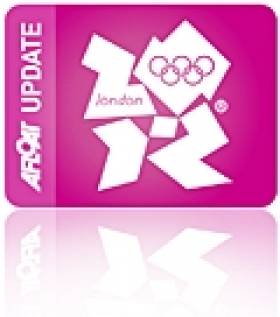Displaying items by tag: Timothy Goodbody
2008 Irish Olympic Finn sailor Timothy Goodbody completed the Round Antigua race last Saturday covering the course of just over 50 nm in a Laser dinghy in a time of 10 hours and 48 minutes.
According to an Afloat.ie source, no dinghy has ever entered the race before, so the Irish helmsman from the Royal Irish Yacht Club in Dun Laoghaire picked up a "double" first for his efforts. The organisers have now set the time as a race record to be beaten.
Down the north side of the island Goodbody sailed through a sea of turtles in great big surfing rollers. He ran out of wind at the bottom of the island and then had a long beat to the finish line in Falmouth Harbour. Goodbody reckons with the right conditions it could be done in approx nine hours.
He carried a VHF, EPIRP, GPS and about 10 litres of water for the circumnavigation.
Irish Olympic Crews in Top Twenty of World Rankings
Peter O'Leary who has been sailing with three different crews, David Burrows, Frithjof Kleen and Timothy Goodbody to date is ranked 17th by the International Sailing Federation (ISAF).
O'Leary and Burrows sailing in the Star keelboat class were recent top finishers at 93-boat fleet in Miami. They finished second overall after they lost the overall lead in the last race of the 2011 Bacardi Cup.
Listen into a podcast about Peter O'Leary's Olympic sailing plans HERE.
Fellow Olympic squad member, 21-year old Annalise Murphy from Dun Laoghaire is now ranked 12th in the Laser radial class counting seven ISAF events. Murphy has also had success in Florida this season, she finished fourth in the Miami Olympic Classes regatta in January.
Listen to what Team Manager James O'Callaghan has to say about her progress:
The next release of the ISAF World Sailing Rankings will be on 13 April 2011 and will include the Trofeo SAR Princess Sofia Mapfre in Spain.
The ISAF World Sailing Rankings rate skippers based on their performances over the last two years. Skippers score points by competing in ISAF Graded events. The top finishers at all ISAF Graded events score Rankings points, with the highest points awarded to the event winner and then decreasing down relative to position.
More Irish Olympic Sailing News HERE.
























































